-
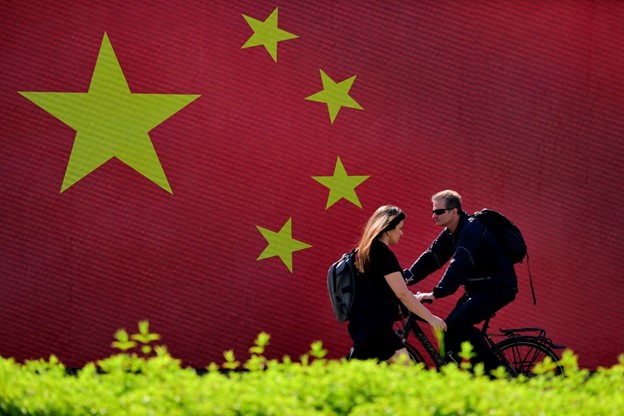
May 30, 2024: China's Investment Trap
By Chen Guangcheng
Under the control of the Chinese Communist Party (CCP) there is no rule of law. Executives of foreign corporations and investment firms that invest in China must know this fact. Yet so many have taken the risk, enticed by profits and confident they can stay in the good graces of the ruling dictatorship. But how safe are investments in China? At what point will foreign corporate leaders realize they have fallen into a trap? Read here!
-
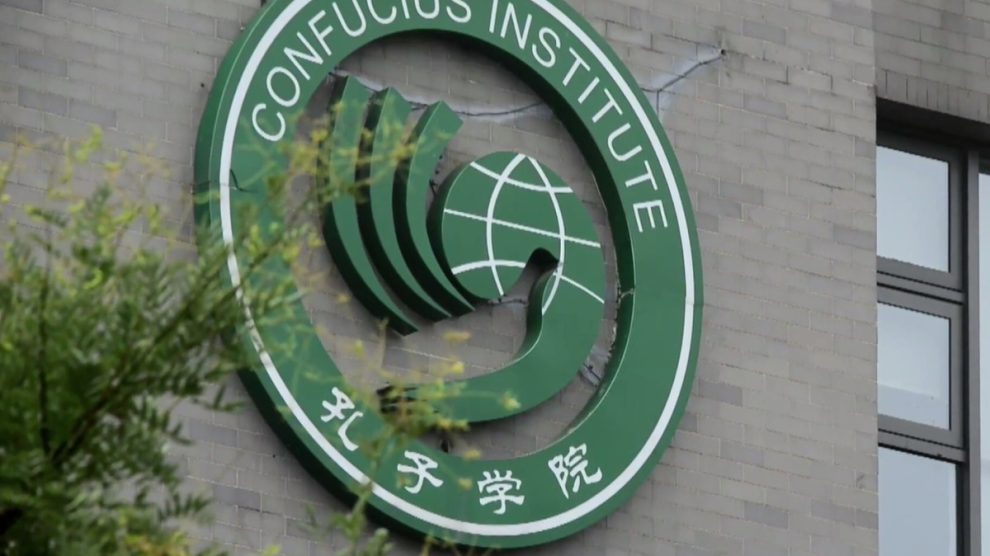
REPORT The Lingering Threat of Confucius Institutes Chinese Soft Power Influence in American Education
"Following a deluge of exposés in the 2010s that raised alarms about instances of whitewashing Chinese human rights abuses and censoring discussion of sensitive party topics including Tiananmen Square and the status of Taiwan, Confucius Institutes received significant negative press attention that resulted in both executive and legislative action. Following pressure from Congress and the Department of Education, nearly all of the 118 Confucius Institutes located in the United States shuttered—at least ostensibly. However, a closer look into the funds, contracts, and continuing partnerships between American universities and the CCP strongly suggests that Confucius Institutes have not actually retreated from American higher education; they have simply rebranded. This report will discuss the history of Confucius Institutes in the United States, their continuing influence under new names, and why the world should pay attention."
-
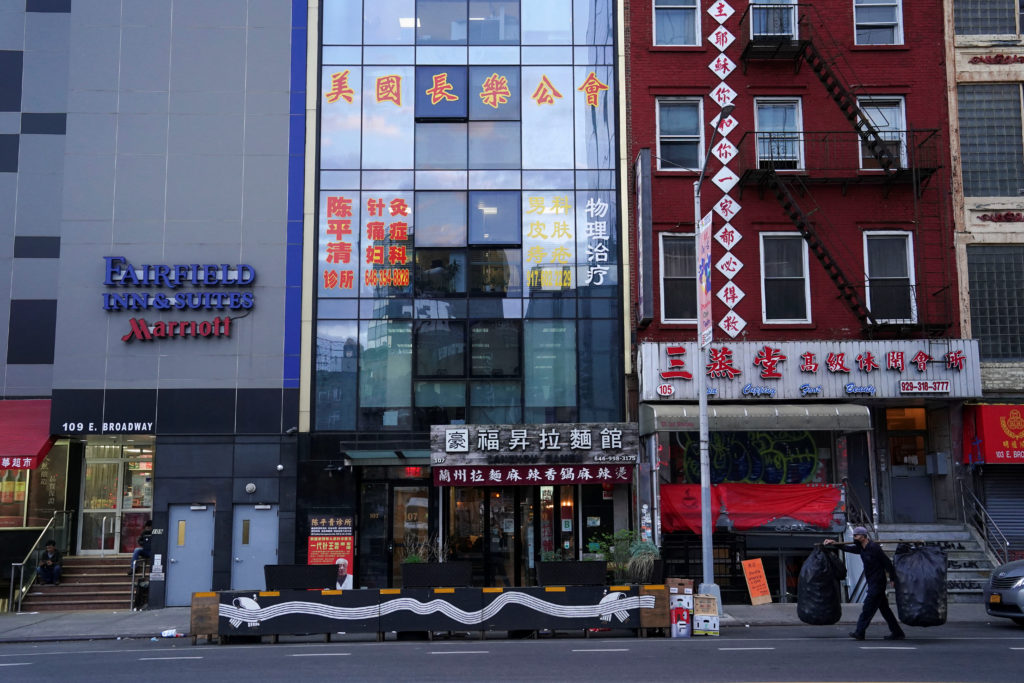
REPORT Chinese ‘Police Stations’ in the United States – Designing an Effective Response
Safeguard Defenders, a Spanish NGO, released a report in late 2022 that brought attention - as did arrests in the USA - to the growing presence of secret Chinese “police stations” across the world. This new report from the Center starts by looking at the issue itself, then moves to a study of this problem in Europe and the United States. The legal analysis that follows discusses the international laws, United States’ federal laws, and United States’ state laws that are implicated by this issue.
-
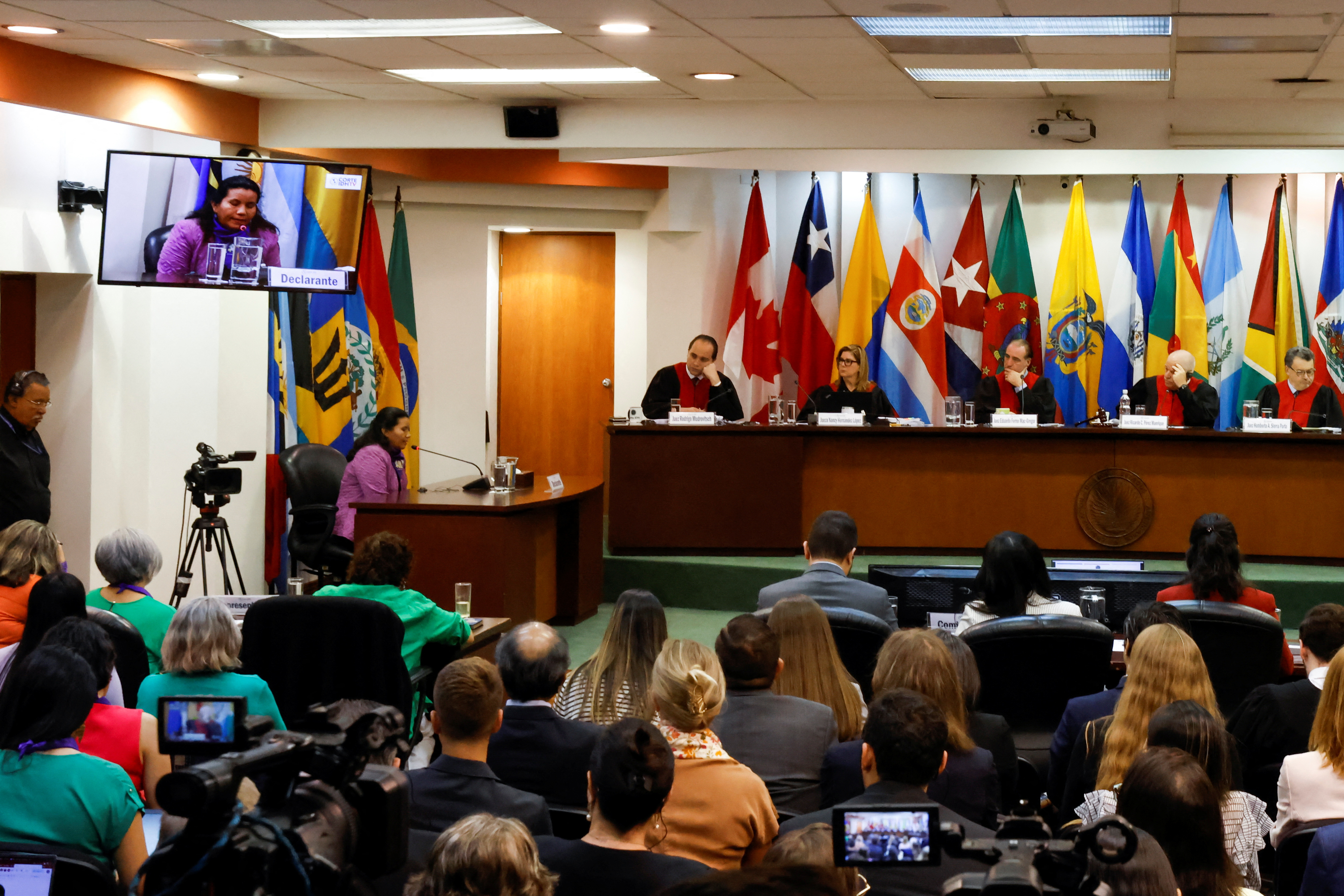
Amicus Curiae Brief in Beatriz v. El Salvador
The following brief was signed by Dr. William Saunders, Director of the Center for Human Rights.
The brief makes the following arguments, among others:
"This contribution questions the legal validity of the IACHR Commission's claim that the State of El Salvador has violated its international human rights obligations by criminalizing abortion and protecting human life from conception. [...]
2 A. The non-existence of a human right to abortion, according to conventional human rights law.
2 B. The non-existence of a human right to abortion under customary international law.
2 C. The non-existence of a human right to abortion under "Soft Law": The non-binding instruments and the jurisprudence of the European Court of Human Rights, cited by the IACHR Commission, cannot be interpreted as recognizing a human right to abortion."
-
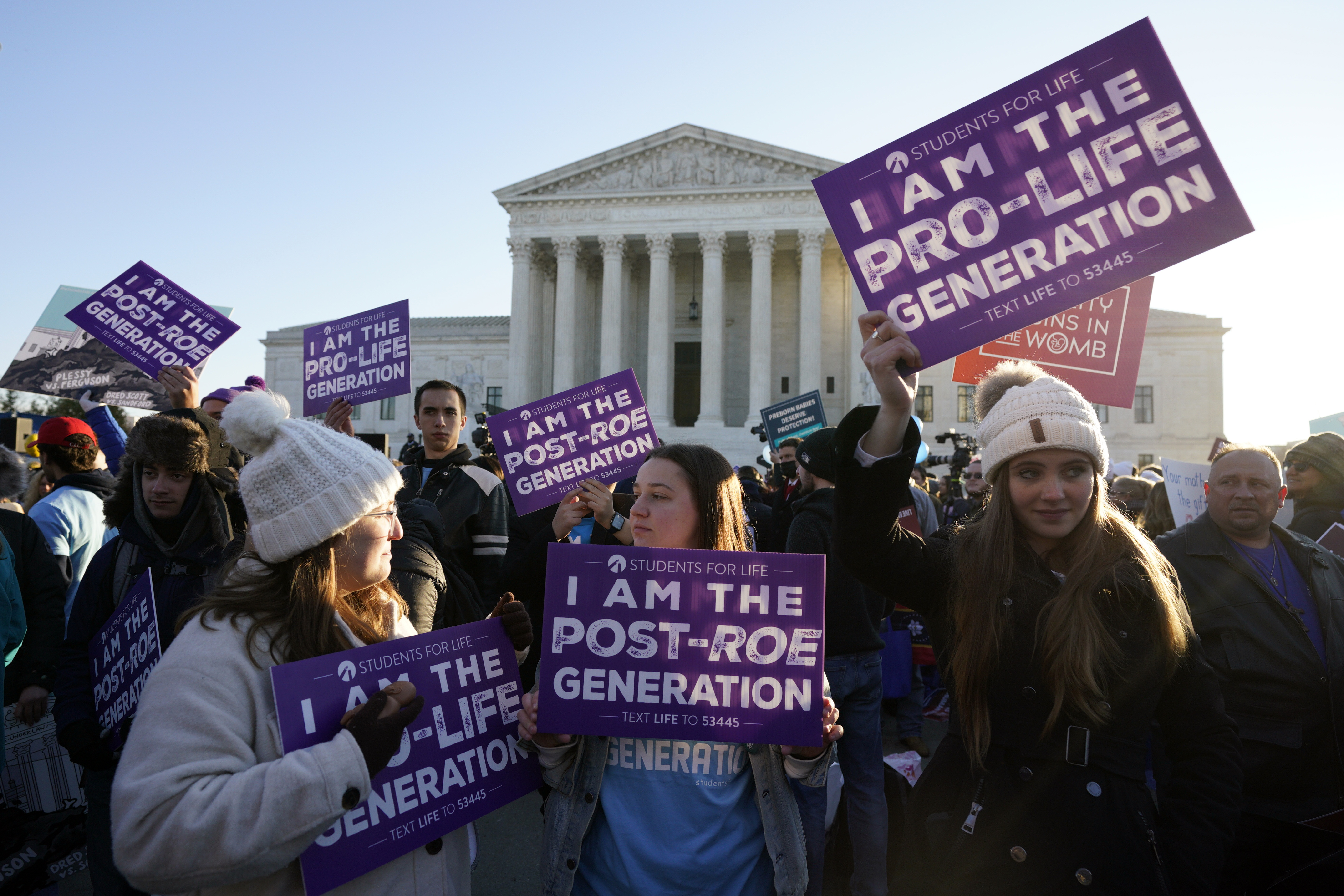
Amicus Curiae in Dobbs v. Jackson's Women's Health Organization
The following brief was signed by Dr. William Saunders, Director of the Center for Human Rights:
"Amici curiae consist of 141 international legal scholars, including former judges and justice officials, deans of law schools, and law professors and law scholars. A full identification of each amicus appears in the Appendix. Amici assert the inherent right to life of the unborn and recognize Mississippi’s interest in limiting access to abortion on demand. Amici are concerned with preserving the principle of state-level freedom to tailor abortion regulations." READ MORE HERE!
-

April 24, 2023: China’s proxy war against faith
Written by Sam Brownback, Fellow at Center for Human Rights, and Erica Lizza, M.A. Student at Center for Human Rights, for The Hill
"On March 24, Honduras became the latest Latin American country to switch its allegiance from Taiwan to the People’s Republic of China. Costa Rica ended its diplomatic ties with Taiwan back in 2007, while Panama, El Salvador, and the Dominican Republic all severed ties and entered relationships with China in 2017 and 2018. And Nicaragua, under the leadership of Daniel Ortega, has had an on and off relationship with China dating back to Ortega’s role on the governing Sandinista junta in the 1980s. Nicaragua officially broke ties with Taiwan and began its embrace of China in December 2021, shortly after Ortega was reelected to his fourth consecutive term in an election that was widely considered fraudulent. Most recently, the Ortega government has launched a campaign against the Catholic Church in Nicaragua, resulting in the abduction, sham trial, and imprisonment of Bishop Rolando Álvarez, the expulsion of the Missionaries of Charity and other Catholic organizations, and the closure of two Catholic universities. The government has also banned and repressed traditional public processions including the Way of the Cross and Los Cirineos, a tradition which commemorates the role of Simon the Cyrenian, who helped Jesus Christ carry the cross to Calvary." Read More Here!
-
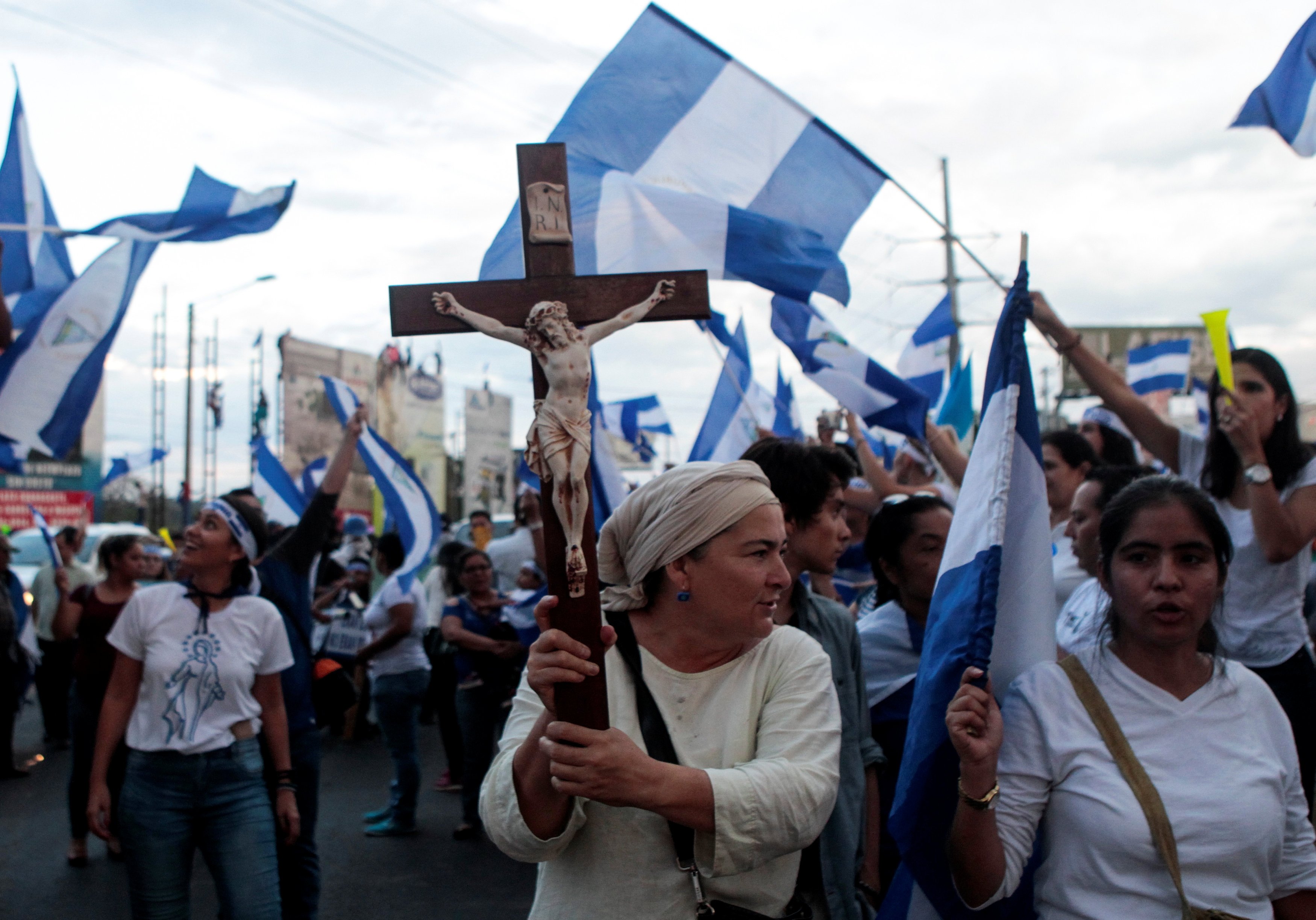
April 11, 2023: It is dangerous to be Catholic in Nicaragua. Here’s how Americans can help.
Written by Sam Brownback, Fellow at Center for Human Rights, and Erica Lizza, M.A. Student at Center for Human Rights, for America Magazine
"Being Catholic in Nicaragua is dangerous. To show your faith in any way, whether through displaying religious images or being seen with clergy, is to single yourself out for likely punishment and a dark, uncertain fate. The regime of President Daniel Ortega has shut down a major Catholic charity (Caritas Nicaragua), expelled the Missionaries of Charity (the order of religious sisters founded by St. Teresa of Kolkata), and deported or imprisoned Catholic clergy, including Bishop Rolando Álvarez of Matagalpa. This year the regime has also dissolved John Paul II University and banned public processions of the Way of the Cross. And the Nicaraguan government has proposed a suspension of diplomatic ties with the Holy See, which has since resulted in the Holy See closing its embassy in Managua." Read More Here!
-

March 30, 2023: The Law Under the CCP Is a Sham
Written by Distinguished Fellow Chen Guangcheng for Public Discourse:
"As I wrote in a recent article published in the Wall Street Journal, there is no rule of law under authoritarian rule. No matter if we are talking about emperors of old or the party-state systems of the past century (otherwise known as communist authoritarianism), the enduring characteristics are the same: a tiny minority or even one individual holds the highest levels of power, monopolizing the authority and resources of the nation. Any laws created in such systems are merely tools to protect these monopolies for the benefit of the rulers, at the expense of the ruled." Read More Here!
-
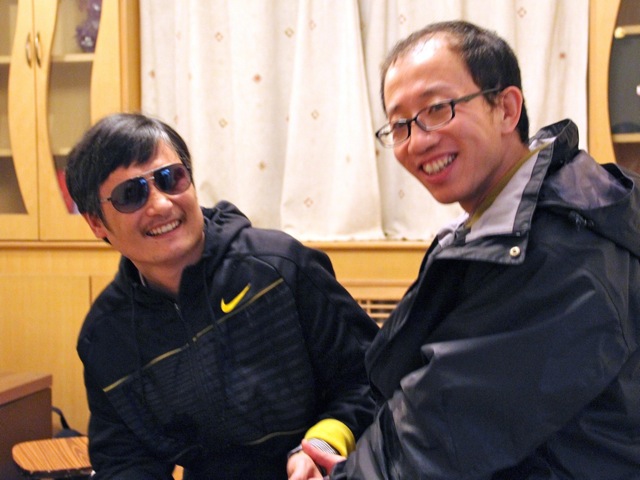
March 24, 2023: Coming Out of the Two Sessions, the CCP Cares for Only One Thing—Itself
Written by Distinguished Fellow Chen Guangcheng for Public Discourse:
"In early March, the Chinese Communist Party’s (CCP) “Two Sessions” began, during which time top officials of the CCP met to discuss policy. This year, as expected, Xi Jinping was anointed for a third term as Party chief." Read More Here!
-

February 23, 2023: Biden administration must confront Nicaragua’s assault on religious freedom
Written by Erica Lizza, M.A. Student at Center for Human Rights, for Univison
"Nicaragua is erupting as the latest major battleground over religious freedom due to the autocratic regime of President Daniel Ortega’s targeting of religious critics for special persecution—inciting mob violence, detaining opponents, and perpetrating legal abuses against human rights champions." Read More Here!
-
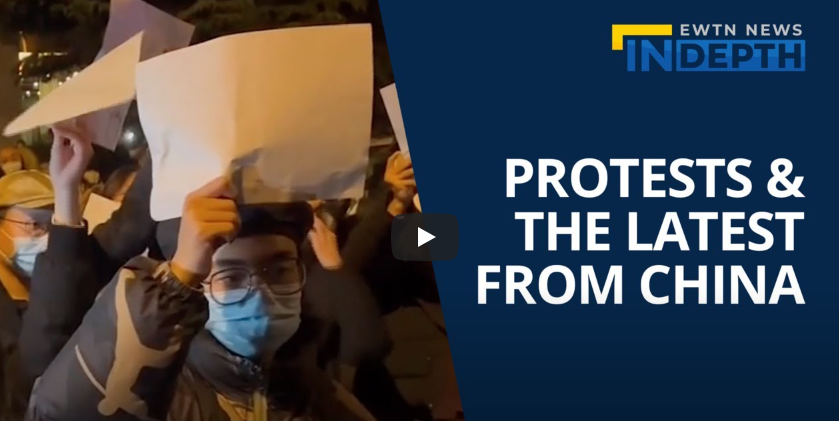
December 2, 2022: Dr. William Saunders Discusses Chinese Protests on EWTN
From extreme COVID lockdowns to violations in the Vatican/China agreement, the Chinese Communist Party continues to commit human rights attrocities on a mass scale. Hosted by Montse Alvarado, EWTN News In Depth welcomed the Catholic University of America's Center for Human Rights Director Dr. William Saunders and several other guests to discuss the waves of protests against the Communist Party's tyranny. Watch Here! -

October 1, 2022: Prof. Sen Nieh presents at the International Commission for Human Rights and Religious Freedom
The practice and even private belief in religious or spiritual thought is strictly controlled in China, and given leeway only as long as their assemblies do not grow beyond a certain point. This insecurity drives a system of monitoring and repression that can brutally crush even peaceful spiritual assemblies. What are the implications of this for the world? Speaking at the International Commission for Human Rights and Religious Freedom (ICHRRF), Center for Human Rights Fellow Prof. Sen Nieh presents the case of Falun Gong. Watch Here! -
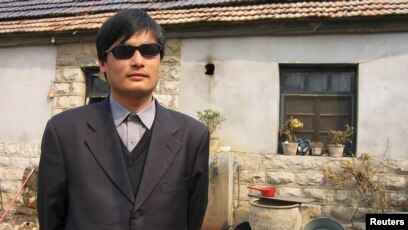
July 13, 2022: Why the Chinese Communist Party Is Destroying My Village
"The Chinese Communist Party is again burying history to make a profit and hide its inhumane deeds. How else can one describe its plan to build a dam submerging 27 villages—including my own—without a demonstrated need for such a large-scale public-works structure?" Read More Here! Listen to Podcast Here! -
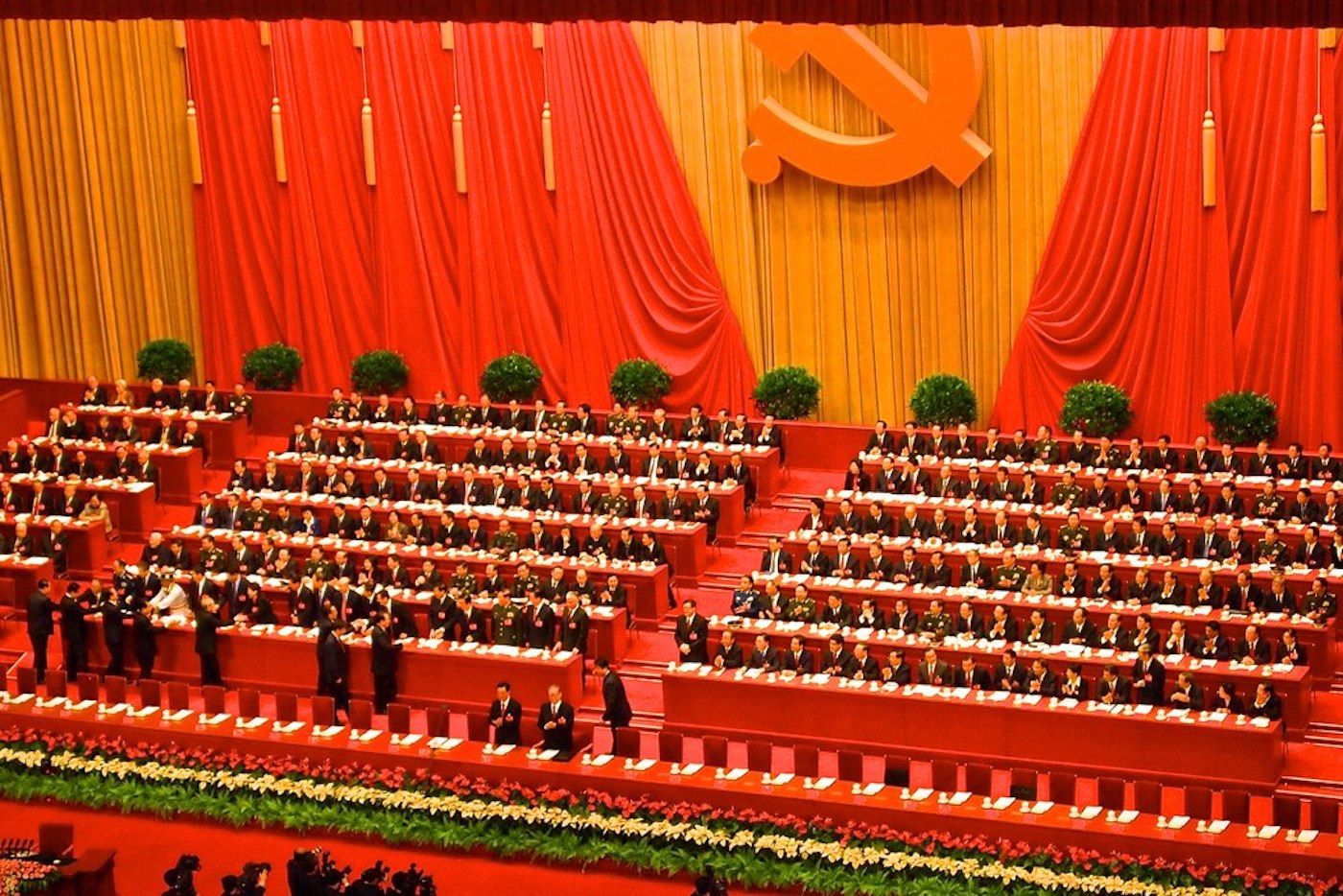
February 8: Article: The CCP’s Fake Democracy: How the CCP Controls China and Fools the World
Chen Guangcheng writes about the Chinese Communist Party's authoritarian governance structures for the Witherspoon Institute's Public Discourse. Read Part One Here! Read Part Two Here! -
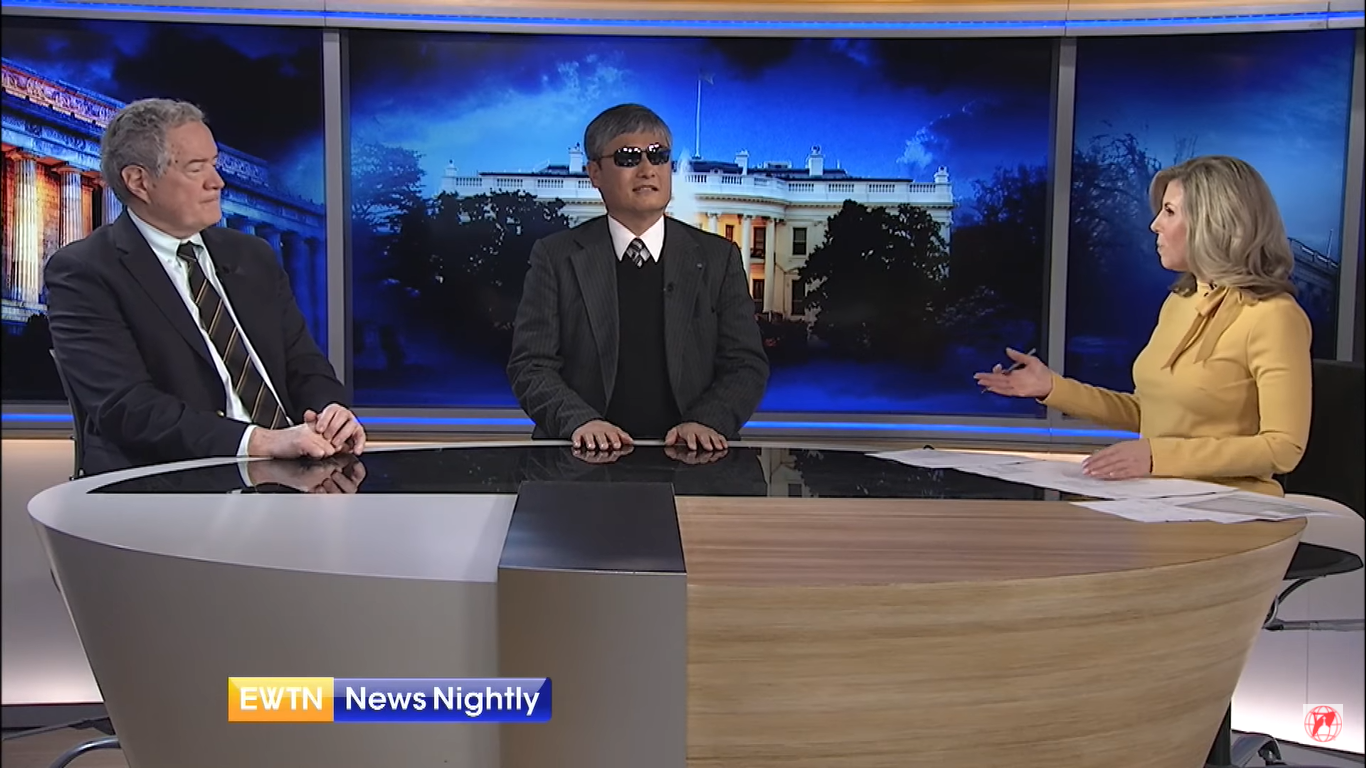
February 3, 2022: William Saunders and Chen Guangcheng Discuss the Beijing Olympics on EWTN
Chen Guangheng, distinguished fellow, Center for Human Rights, and William Saunders, director, Center for Human Rights, appeared on EWTN News Nightly to discuss China and the Beijing Olympics. Watch Here!
-
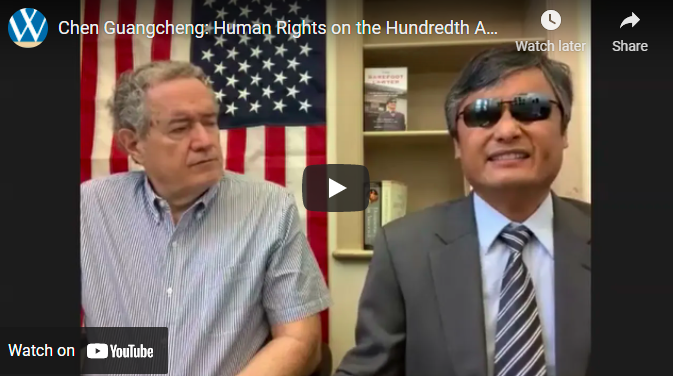
July 9, 2021: The Hundredth Anniversary of the Chinese Communist Party
Chen Guangcheng and Dr. Bill Saunders are interviewed by the Westminster Institute about the Chinese Communist Party's one hundredth anniversary. Watch here! -
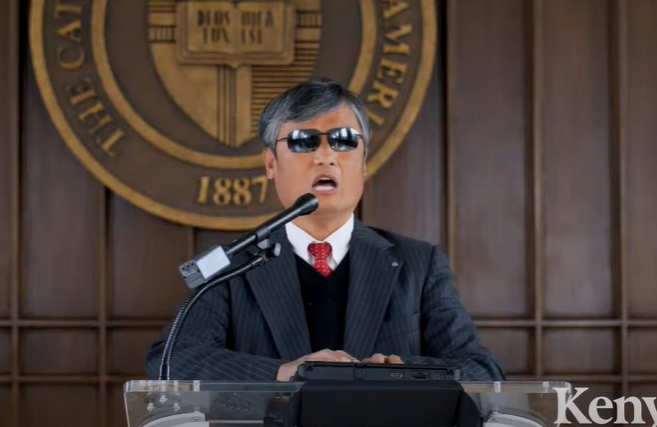
April 8, 2021: Chen Guangcheng wins Leopoldo López Freedom and Democracy Award
The Leopoldo López Freedom and Democracy Award honors an individual who has shown a commitment to plural and inclusive democracy echoing that of the award’s namesake, prominent Venezuelan opposition leader and political prisoner Leopoldo López ’93 H’07. In creating the award, López’s classmates, family and the Kenyon community at large ensure López’s commitment and bravery will not be forgotten, and they shine a light on the dangers of undermining the core principles of democracy. The award, which comes with a $10,000 honorarium, will be presented for the second time in spring 2022. The inaugural winner of the López Award was Chinese human rights activist Chen Guangcheng. Watch Here!
